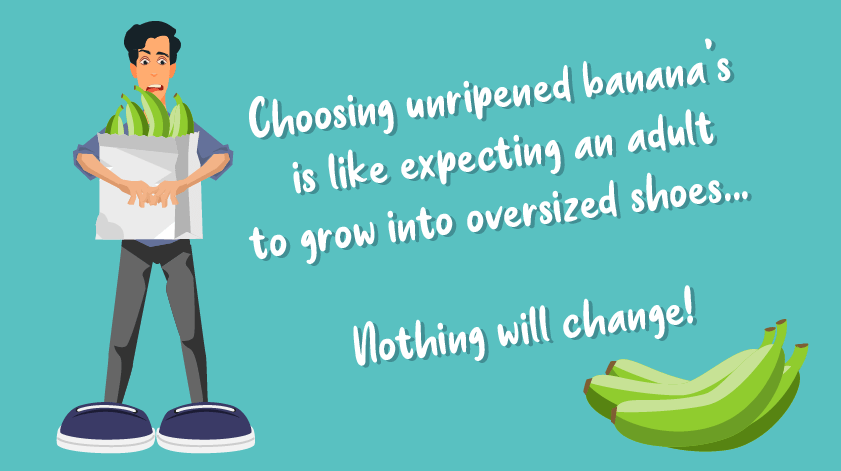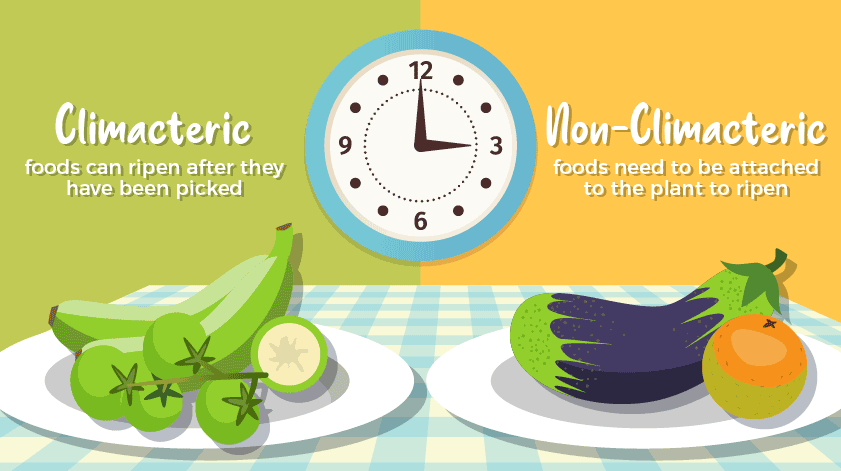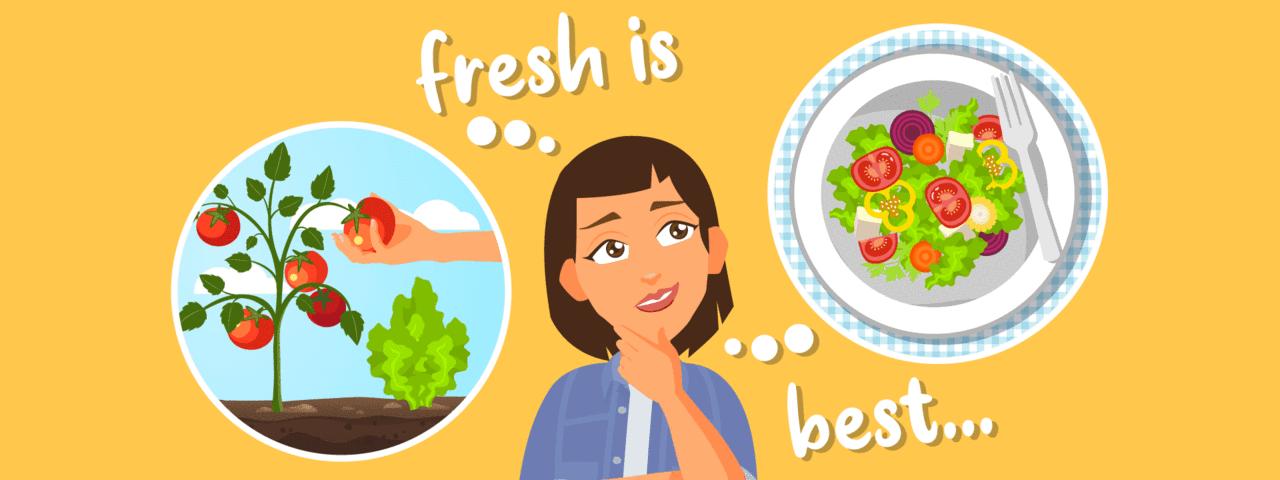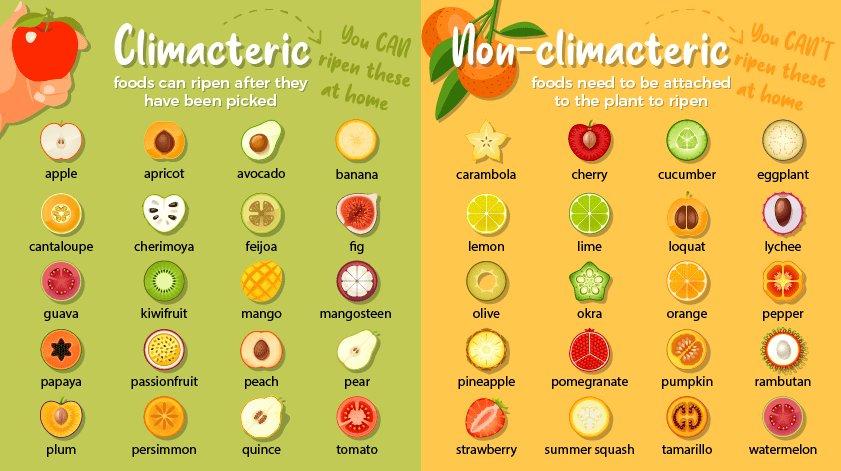Picking the fruit that’s in season is a great start, it means the food has the best possible levels of nutrients.
The next step is to eat it as soon as possible, so as many those nutrients stay in the food.
Vegetable gardens versus supermarkets
The fantasy of having your own vegetable garden is to go out to the garden, pick some lettuce and tomatoes and put them into the salad for that night's dinner. After all, fresh is best.
In the supermarket, things are a bit different. The instinct is to pick fruit and vegetables that aren't quite ripe yet. After all, most of the time they're going to be in the fridge or on the bench for a few days, so they'll need time to ripen.
The idea behind this is a logical one. It's a bit like buying children's shoes too big, so they'll have time to grow into them.
But like most things in life (children's feet included!) it's not quite that simple.

Don't always follow your produce instinct
You see, not all fruit ripens after it's been picked.
Bananas and tomatoes? They will change color and ripen after you get them home.
Oranges and pineapples? They won't ripen at home. The moment you get them (whether it's from the tree or the supermarket) is the best it's going to get.
So what makes the difference?
Ethylene - the ripening hormone
Ethylene is a hormone, sometimes called the "ripening hormone". It's a colorless, odorless gas that is naturally produced by plants.
As the fruit ripens, ethylene causes fruit to turn softer and sweeter, leaves to droop on plants, and seeds or buds to sprout.
Add the word "climacteric" to your shopping list
Fruits and vegetables are classified as "climacteric" or "non-climacteric" depending on their response to ethylene.
What this means for your shopping list is that some produce ripens after it's been picked, while others don't. So don't choose what to put in your trolley assuming it will be "better" when you're ready to eat it in a few days' time. Because that's not always the case.
The good news is, we have a list below to help you.
But first, a bit of detail on the differences.





